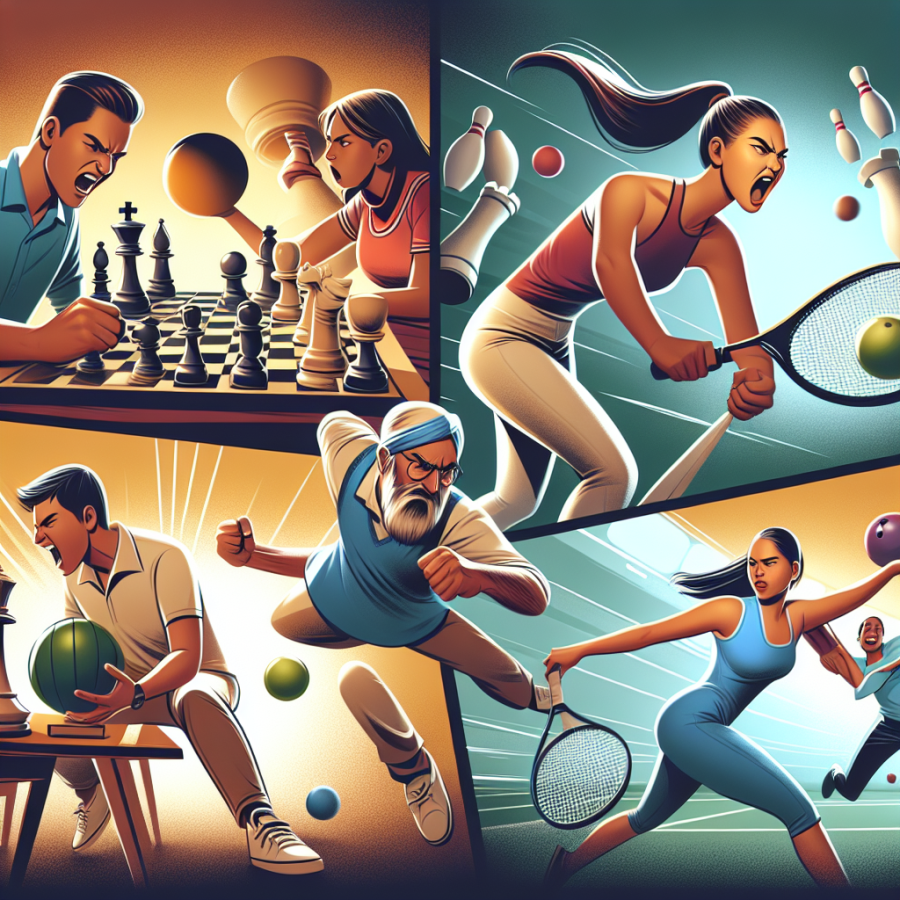The Influence of Competitive Activities on Professional Progression
Competition in the professional world is a catalyst for growth, innovation, and improvement. Competitive activities play a pivotal role in driving professional development and progression as they steer individuals to strive for excellence, adopt innovative approaches, and maintain the edge in their respective fields.
Competitive activities lay the foundation for growth and development in professional life. It offers an excellent platform for individuals to test and compare their capabilities and skills against others. This process not only identifies the areas they excel in but also highlights those that require attention and improvement. For the driven professional, this translates to a pathway to improve, evolve, and stand out in their field.
The adoption of a competitive mindset fostishes resilience, a characteristic highly valued in the face of professional challenges. In an ever-changing professional landscape, the ability to adapt and bounce back is a much-needed trait. Competitive activities impart this resilience, preparing professionals to handle tough times and come back stronger than before.
Moreover, these activities foster innovation and creative thinking, both central to professional progression. Innovation is the currency of the future. Competitive activities push professionals to think outside-the-box and offer unique solutions. By training professionals to become problem-solvers, competitive activities inadvertently create leaders that steer organizations towards growth and success.
Competition also leads to better decision-making abilities. When professionals are regularly exposed to competitive scenarios, they become adept at analyzing situations, anticipating outcomes, and making sound judgments that take into account both the benefits and risks. This balanced decision-making is instrumental in professional development and progression.
Furthemore, competitive activities offer professionals real-world situations to demonstrate their skills, knowledge, and talent. This boosts their confidence level which then reflects in their workplace efficiency and effectiveness. A confident individual not only helps in uplifting the organization's morale but also encourages team members to attain their optimum potential.
Lastly, in amidst a competitive environment, communication plays a key role. Competitive activities teach individuals how to communicate effectively, whether that be expressing their strategies and ideas or listening and understanding others' perspectives, which is critical to a successful professional career.
In conclusion, competitive activities are a vital catalyst in promoting professional growth. They embed resilience, drive innovation, foster effective communication, and polish various other essential skills, paving the way for an individual's professional progression. By aligning to a competitive mindset, individuals and organizations can harness the benefits of competition to champion their fields.
Read also:
Finding the Perfect Fit: A Comprehensive Guide to Selecting the Right Golf Shaft for You
Enhancing Personal Growth through Competitive Activities
Competitive activities truly play a transformative role in personal and professional development. While some may shy away from competition fearing defeat or failure, it's important to understand how these activities can enhance personal growth.
Competitive activities often involve setting personal goals. An individual may strive to win, or to simply improve specific skills. When a person sets and begins to work toward these goals, perseverance is developed. This quality helps individuals face challenges, not only in competitions, but also in personal and professional life. It cultivates a mindset that doesn't give up in the face of adversity, but instead persists until the goal is accomplished.
Another key way competitive activities bolster personal growth is through the development of self-confidence. As individuals participate in competitive activities and notice their own progress, they begin building confidence in their abilities. This confidence eventually seeps into other aspects of their life - be it personal or professional. They become more assured decision-makers, are better equipped to voice their ideas, and become more comfortable in leadership roles.
Competitive activities also encourage a spirit of continuous learning. They teach individuals to be adaptable and to strive to constantly improve. This attitude of continuous learning and improvement is crucial in a professional environment, especially in today's rapidly evolving workplace. The ability to adapt to new technologies, working methods, or protocols is a valuable asset in any professional field.
One of the less celebrated, but equally important benefits of competitive activities is how they teach individuals to deal with failure in a healthy way. Losing is a part of any competition and learning to accept defeat gracefully is an essential life skill. It encourages individuals to develop resilience, learn from their mistakes, and use those lessons to improve future performance.
Competitive activities also promote teamwork and the ability to work effectively with others. This is an especially pivotal professional skill. In team competitions, individuals learn to collaborate with a diverse group of people in pursuit of a common goal. They learn to communicate effectively, delegate tasks, respect differing viewpoints and capitalize on each member's strengths.
Lastly, competitive activities can foster time management skills. Whether it's a competition that requires preparation over weeks or months, or a fast-paced day-long event, the ability to manage time effectively is sharpened. This can translate into improved professional productivity as competition participants can prioritize tasks, create schedules, set deadlines, and build the discipline to adhere to them.
In conclusion, participating in competitive activities is more than just an avenue for winning or losing.




